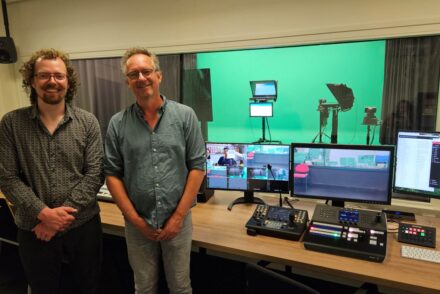Getting it right at the wrong time: why stalling on Israeli partnerships is a problem
How would we remember Atticus Finch if he had waited until after Tom Robinson’s trial to determine that Robinson deserved a criminal defense attorney, asks Phillip Paiement.

Harper Lee’s 1960 classic novel, To Kill A Mockingbird, covers Atticus’ determination to provide legal counsel to Robinson, a black man accused of raping a young white girl, despite the disapproval of his neighbors. Would Atticus still be a symbol of moral integrity if he had only realized his moral responsibility after Robinson had been convicted? Or does the timing of his decision matter?
For five months I’ve patiently waited for the decision of Tilburg University’s Advisory Committee on Collaborations. I support the work of the committee, though I am also concerned that it is effectively delaying and diffusing scrutiny of the university’s partners in Israel who contribute to the ongoing genocidal campaign in Gaza and the unlawful occupation of Palestine in a myriad of ways. The Committee completed its human rights framework two months ago but has not made it public. Nor has the Committee offered a timeline on when it will provide its advice to the TiU Executive Board. Before they had begun in June, more than eighty universities across Europe had completed similar human rights evaluations resulting in the suspension or cancellation of their collaboration with Israeli universities. Half a year later, we are still waiting in Tilburg.
The impunity which Israel receives from the Dutch government and our universities fly in the face of months of consensus that Israel is engaged in extensive violations of international law and potentially committing genocide through its campaigns of starvation and bombardment in Gaza. The terrible violence that occurred last week in Amsterdam – the celebration of genocide of Palestinians, the incitement of hatred against Arabs, and the violent assaults on Israeli Maccabi supporters – are a consequence of this ongoing impunity. The impunity reflects the PVV’s position that Palestine ‘does not exist, has never existed and will never exist’.
The involvement of our partner universities in Israel’s unlawful occupation of Palestine and violations of international humanitarian law are promoted on their webpages and social media accounts. Training active intelligence officers, dispossessing Palestinian lands to build campuses in unlawful West Bank settlements, providing scholarships to active duty soldiers on deployment in Gaza, producing propaganda to ‘sell’ the bombing of Gaza to foreign audiences, and awarding Yossi Cohen – former director of Mossad – with an honorary doctorate while he was allegedly threatening the ICC Prosecutor into halting investigations of Israeli officials, actions for which he is now the subject of a criminal investigation in the Netherlands. These are the actions of our partners in science.
Meanwhile, TiU fosters closer ties to Israel and the Dutch government. This semester, Tilburg Law School (TLS) began offering a course in conjunction with a lecturer and students from the University of Tel Aviv. The School of Humanities and Digital Sciences (TSHD) has entered into a new NWO research consortium with Thales, a company which produces surveillance drones for Israel’s military, producing data science research for Thales. In 2023 TSHD accepted funding from MinDef to hire an endowed professor of Data Science, Safety & Security. The chosen candidate is coincidentally also a senior researcher at MinDef. A similar endowed professorship from MinDef was also created in the School of Theology. Yet early career scholars face hiring and promotion freezes due to the impending budget cuts. While the TiU Executive and Faculty Boards supported the national protests opposing those budget cuts, they are simultaneously placing at risk its values of academic freedom and independence from political institutions.
The results are quick to take shape. Lecturers who have announced university-sanctioned events on Israel-Palestine to their classes have been questioned by university leadership. A poster expressing support for student protestors was been removed from personal workspaces after it was deemed a ‘security risk’. Israel’s actions are not a subject for public discussion but as a security risk that needs managing. When the esteemed Israeli human rights scholar Neve Gordon (Queen Mary University of London) spoke in Tilburg this September on ‘Academic Freedom amid Genocide’, not a single member of the TiU Executive Board or its Faculty Boards attended. Instead, a security team was sent to check the identity cards of students and staff in the audience.
Every month that the Advisory Committee takes to develop its advice is another month in which we find our university further embedded in questionable research and education collaborations. With more stalling, the Committee risks getting it ‘right’ at the wrong time. Atticus Finch is drowning in the agony of indecision. I can hear the clerk calling court into session. It is time to make a decision, Atticus. Will you continue offering Israel impunity?
Phillip Paiement is a professor at Tilburg Law School.






